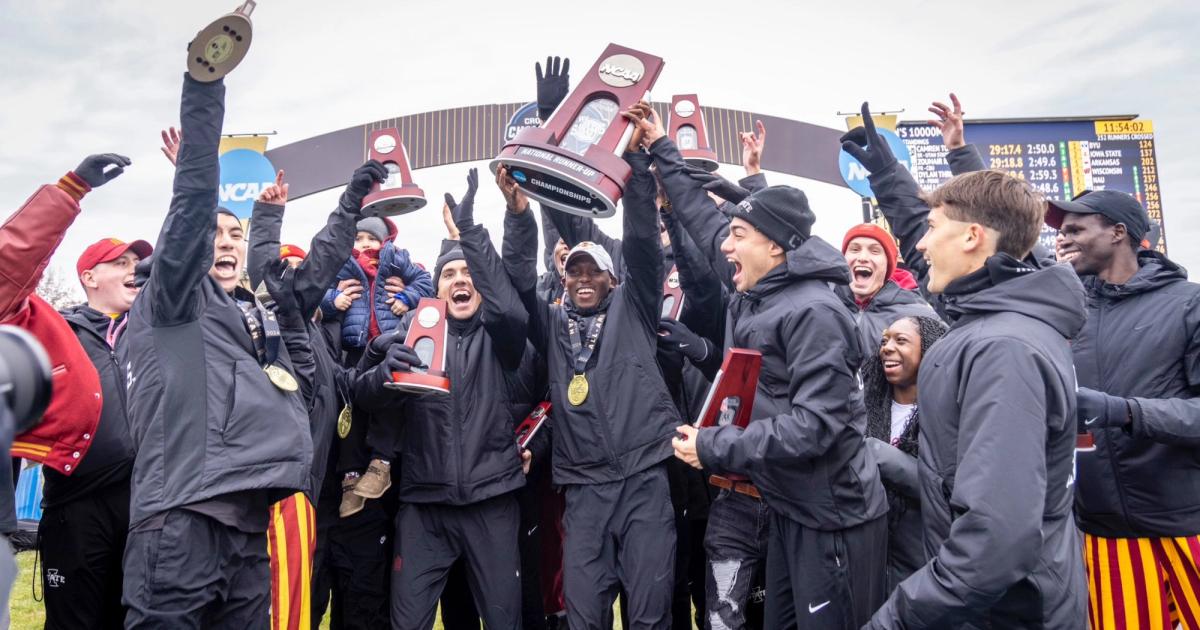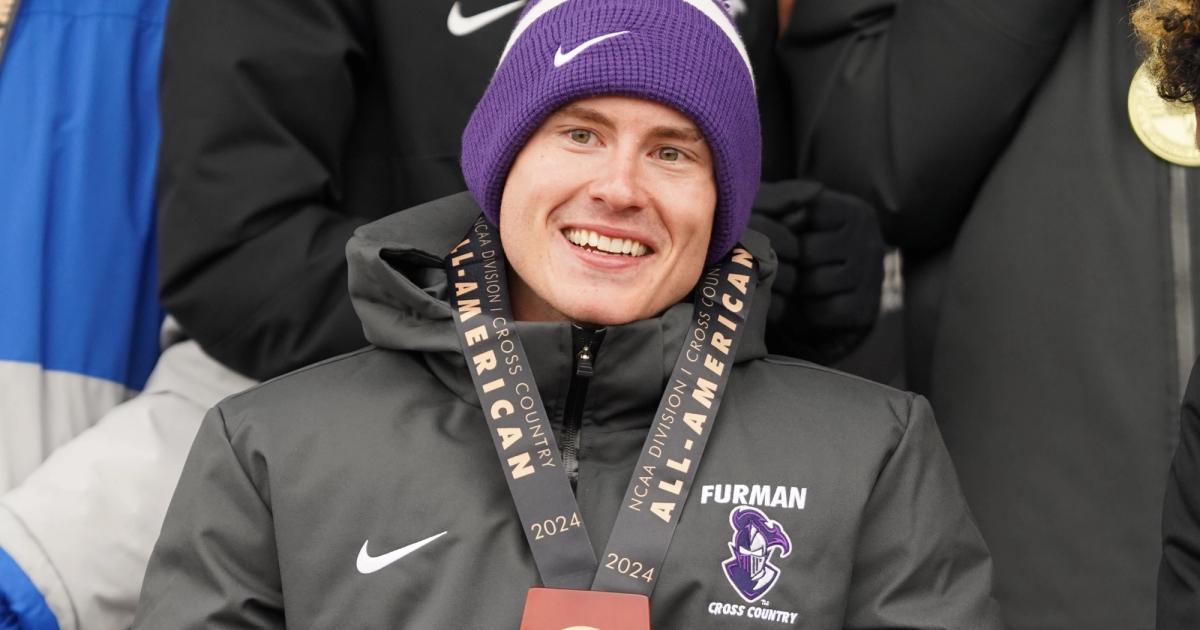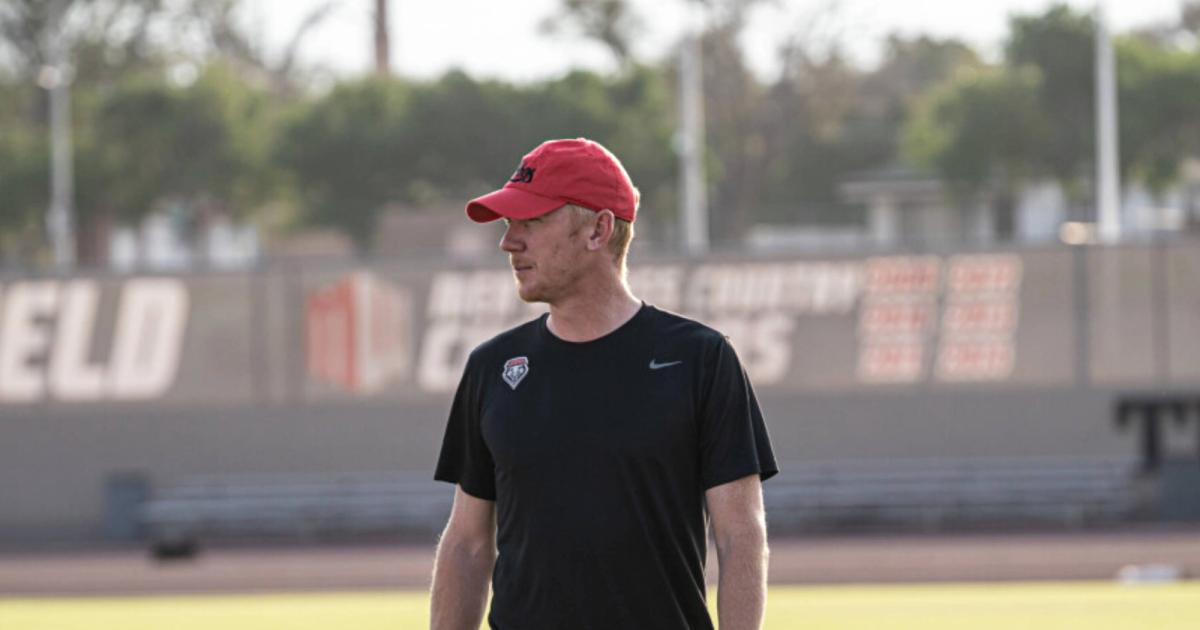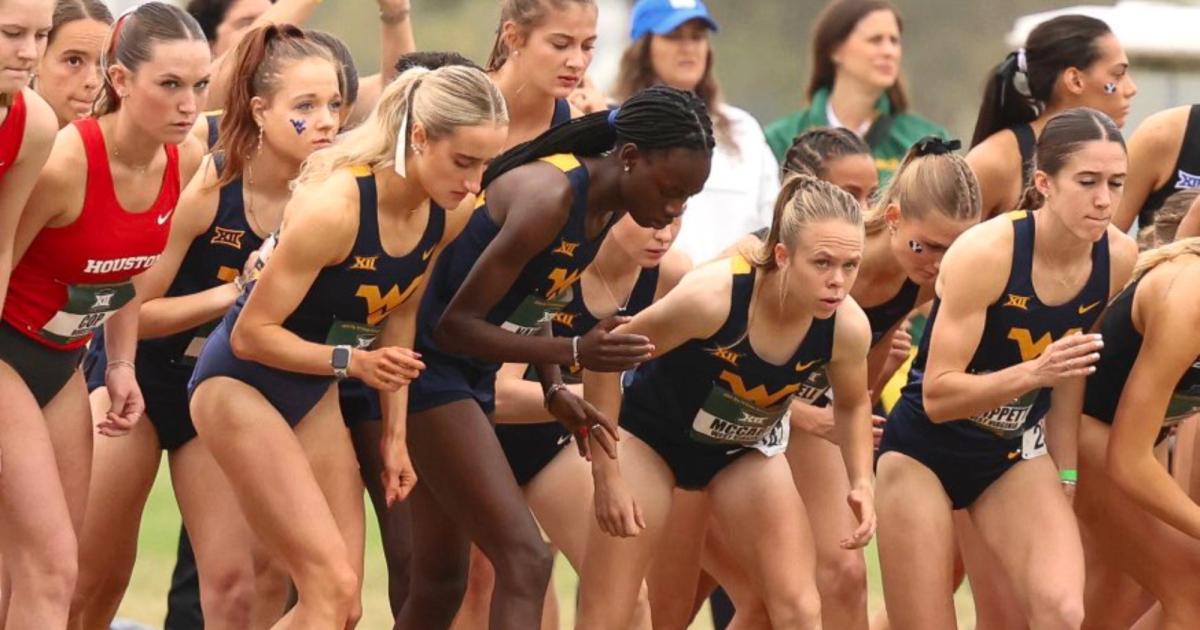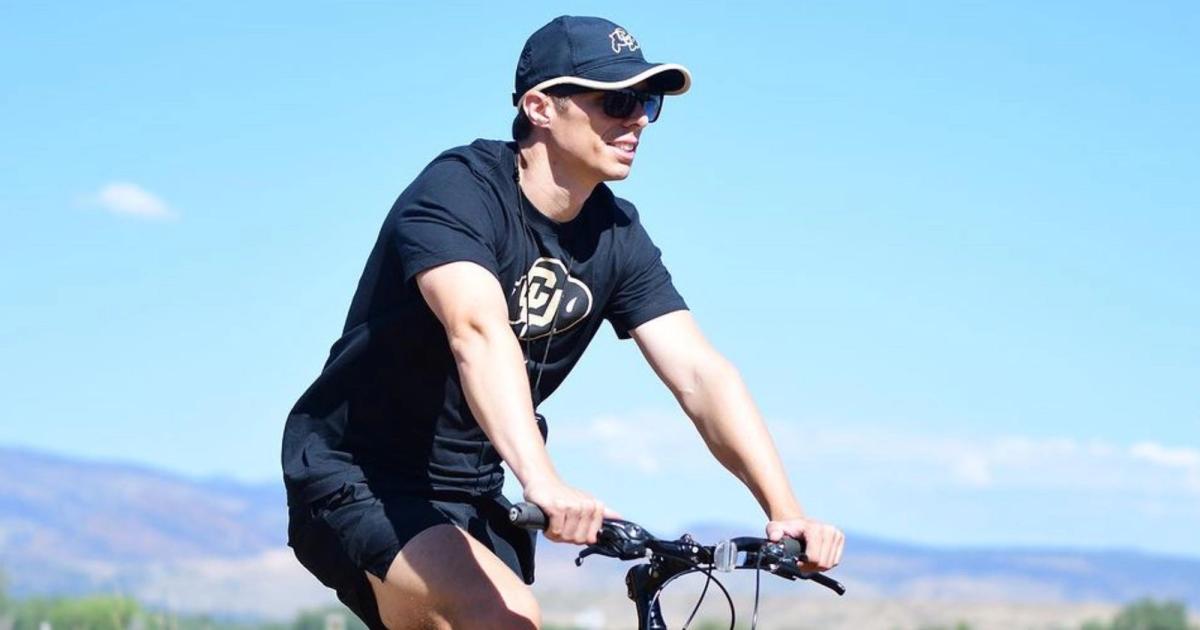By Jasmine Fehr
December 4, 2024
"But the one core thing we do have is our work ethic – this grind-type mentality and this ability to get people to do something when they come together and believe in each other. We have this underdog, chip-on-our-shoulder mentality."
Iowa State’s cross country team is no stranger to top ten finishes at the NCAA Cross Country Championships. But this year, the Cyclone men went beyond expectations, climbing from their season-long ranking of 4th and 5th to an incredible runner-up finish behind BYU.
We caught up with Jeremy Sudbury, Iowa State’s director of cross country and track & field, to hear about how he’s built one of the top programs in the NCAA in just four years at the helm. Sudbury opened up about how he prepares his athletes to peak at nationals, the importance of fostering a strong team culture, and the approach he takes to recruiting top athletes.
He also shared what makes Iowa State’s program stand out and his mindset as a coach. Beyond that, Sudbury discussed his thoughts on changes to the sport including scholarships and roster caps as well as where he sees the program heading in the future.
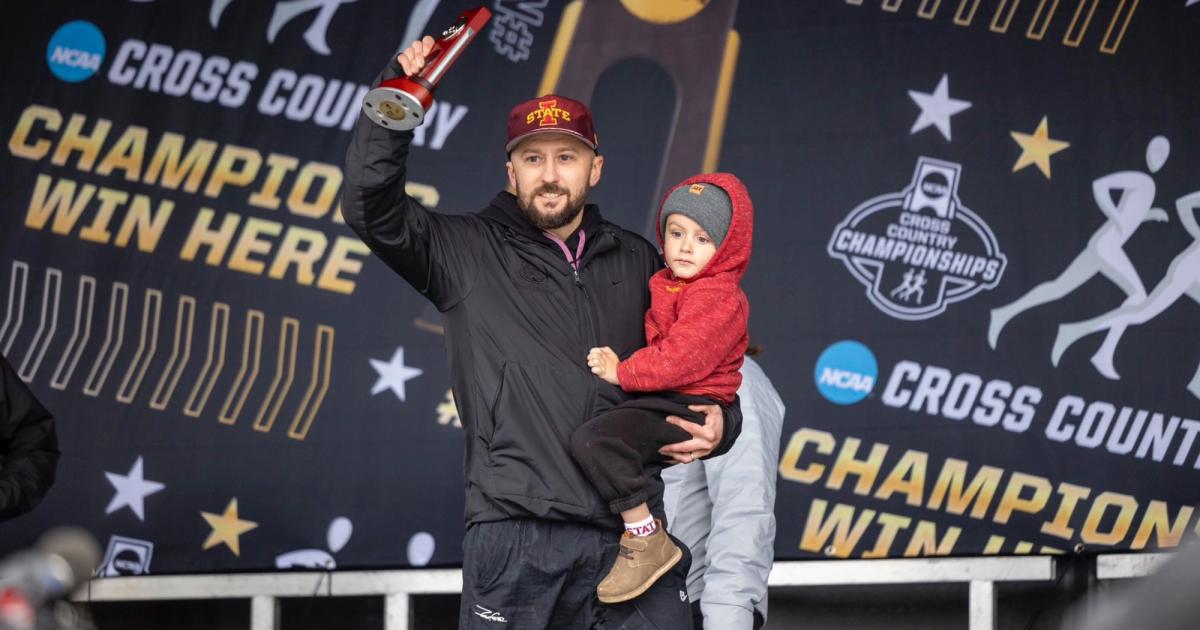
Courtesy Iowa State Athletics
This interview has been edited lightly for length and clarity.
Jasmine Fehr: The men’s team placed runner-up at the NCAA Cross Country Championship after being ranked between 5th and 4th all season. Now that you've had a week to reflect, how are you feeling?
Jeremy Sudbury: It was an awesome season. We were very happy with how we ended the season. The biggest thing for us is that we've always been a team where we’ve felt like we could show up over 10K in November.
One of our strengths historically at Iowa State has been surpassing expectations in the postseason. Last year, we were ranked 17th going into the national meet and we ended up getting 5th. Back in 2021, we were 7th or 8th going into the national meet and we got 2nd. It's something where we feel like we overachieve a little bit.
I would be lying to you if I told you we didn't want to win. We definitely felt like we had a team that could win or challenge on the day to win. Our guys lived up to that expectation, especially when you look at the conference meet. We were beaten pretty handily by BYU and Oklahoma State, but it didn't really rattle us much. We still felt like [winning] was the goal.
Having a week to reflect, we’re really happy with the season. Kudos to coach [Ed] Eyestone and BYU for getting the job done. It's really hard being number one going into the national meet and pulling it off. It just keeps us hungry and motivated for indoor track kicking off this week and then moving into next year.
At what point in the season did you believe that a 2nd place team finish would be possible?
It was always a goal to be on the podium. Top four was our season plan – but as a coach, it got stressful. We had signed two athletes – who ended up being in our top five – way back in the spring that were supposed to come for summer school in June: Robin Kwemoi Bera and Joash Ruto. We were going to see where they were at and how much we needed to do to get them ready and prepared for the NCAA.
Obviously it’s a massive lifestyle change coming from Kenya and getting acclimated to the U.S. Back in June, I would have told you we were trying to be top two or maybe trying to win a national title – but then neither of them got visas for June. So in July, things were looking more like, ‘Let's just try to get on the podium, maybe sneak in a 4th place finish.’
Then August came around and Robin ended up getting a visa a week before school started. When he got here, I had no idea how this guy was going to run. He just got here, so he might hit the ground running or might need a little bit of time to adjust. We got that feeling again of trying to be a podium team.
We were expecting Joash to come in January, but we got a call that he was actually going to another visa appointment and that there was a possibility he could get his visa. This was in early October. We started making some phone calls. We have an awesome international admissions director and international student services here at Iowa State – so between them, compliance, and our administration, we figured out that it was possible and doable. It was going to be a lot of work, but we could make it happen.
Once he officially landed in the US, we felt again that we had a chance to win or pull off a top three or top two finish in November.
You mentioned that it might have taken Robin some time to adjust to the NCAA once he arrived at Iowa State. What do you do to physically and mentally prepare your athletes to compete? Especially if they're coming from other countries.
The biggest thing with our program that I think is unique to our style is I put a lot of emphasis on November. A lot of times you have a new athlete that gets to your program and they're so excited to do something amazing really early and make you proud.
The hardest part with Robin was really just trying to hold him back. We saw that at Nuttycombe where he took the lead and started pushing the pace. That was something we had talked about not doing and instead hang back a little bit and just see where his fitness was at. So for him to go out there and do that was like, ‘Wow. He's really good.’ But we need to figure out how we can get him to be more disciplined early in races and have the confidence in himself to not go out there and necessarily ‘send it.’
If you watch his series of races, every race he got a little better at being patient. At Pre-Nats, he ran much smarter and much more controlled. At Big 12s, he was awesome. [Midwest] Regionals was perfectly executed. Then at nationals, he had one of those days where he ran the right race. He ran a smart race, but just didn't have the extra juice. Maybe that was the whole semester catching up to him a little bit – but nonetheless, he was an all-American in his first semester.
Same with Joash coming in so late. The biggest thing was keeping him healthy without letting him get too carried away with trying to keep up with his teammates that had been training longer. It was the same thing for him: ‘You have a role here. Let's try to hold back, be disciplined, run a team-type of tactic, and then hopefully that will translate to a really good individual race as well. It was that versus trying to individually go out there and win the race where he might get himself into trouble and hurt the team score.
You’re four years into being the program director and have already had a huge amount of success with the team. How have you been able to achieve all this success so far and what are your goals for the coming years?
When I first got the chance to take over, [the program] was something that I had already been involved with building. Martin Smith was our last director. He and I came to Iowa State in 2013 from [The University of] Oklahoma. When we got here, our number one mission statement was to fix the distance program and get them back to nationals.
Iowa had been in a lull period where it had been four or five years since the last time they had qualified. When we got after it recruiting-wise, it took us until our third year to finally get back to nationals. It was hard trying to rebuild something that hadn't been done in a long time and we were trying to do it mostly with domestic recruits. We were trying to sign Foot Locker guys and NXN guys. We were getting traction with that, but it takes time for American athletes to develop sometimes. You can have a really good high school kid, but it takes two or three years for that to translate over to college.
In our third year, we finally got it going. We had a string of top tens. I think we got 7th three times in a row and then 8th during the COVID year. That was the last year that Martin and I worked together. The following fall, I took over. We basically had the same team. The biggest thing was getting the guys to understand that it's all about the periodization of the season and not trying to get in too good of shape too early.
As an athlete, that was my biggest fault. I was unbelievable for my level in September, but then I'd be dead by November. That's what I did as an athlete and I never could learn it – so maybe as a coach I can teach that versus something I never could do myself. That was something that we really tried to talk through and manage as a program.
The other big thing is recruiting. After our third year, we finally [qualified for] nationals. Martin and I discussed how we have an incredible alumni base going back to the 80s and 90s that was predominantly international. We had Jonah Koech, NCAA champ, and John Nutall from England, also an NCAA champ. We had all these incredible international athletes who we weren't really tapping into recruiting-wise.
We started really small. We looked internally. We found a guy from a junior college, Festus Legat, who was in Wyoming at Gillette Community College. He came and ended up having success. Then Edwin Kurgat ended up transferring and decided to choose Iowa State. He had success and that led to getting Wesley Kiptoo. Wesley Kiptoo led us to Sanele Masondo. All of a sudden you start to build that recruiting pipeline of: ‘If you're an athlete that wants to develop and give yourself a chance to be a national champ or a high achieving individual, then maybe Iowa State's a place you should look.’
We started meshing that together. If you look at our roster, the team I took to Big 12s was ten athletes: we had five American athletes and five international athletes. That's something that we’re going to continue to try to do. We have a nice balance of what I like to call a ‘melting pot of running.’
Ultimately, I think it's really exciting for our culture: getting people from all different parts of the world that can come together for one common goal. It seems to be a nice blend. Whether it's five [American athletes] and five [international athletes] every single year, we're going to shoot for having a nice blend of recruiting.
We look at it in three different ways: transfers, American high school developmental athletes, and international athletes. That would probably be why we're having success. But it was already set up pretty well before I took over. We're just trying to not mess it up. That's where we're at right now.
Taking a broader look at the program, how would you define your coaching philosophy and what's important to you in building a positive team environment and atmosphere?
I look to a lot of our other coaches in the department. Right now we have an awesome football team. Coach [Matt] Campbell's been building his program for the last couple of years and they’re on a historic run right now. They're playing the Big 12 Championship game next week and are 10-2. He talks about five star culture instead of five star players.
Our men's basketball coach, TJ Otzelberger – same thing. He's got this mantra: ‘Defense wins.’ He’s got this hard work, grinding [mentality]. We saw him at the outdoor track early in the summer and the fall. They're out there at 5:00 in the morning doing their bear crawls. The strength coach had a headlamp on. It was interesting to see them working really hard, working in the dark.
Plus our women's basketball coach had a ton of success. We call it the ‘Iowa State way.’ The common theme between all three of them is that it's about people, building relationships, and caring about the athlete – not necessarily to help you win or score points. It transcends that. It's not only in college, but life after college too so that they’re set up to do something after they graduate.
We look at the valuable resources we do have and the athletes that we do get and try to put as much as we can into them individually. We also keep a smaller roster because I feel like we can be more effective in getting more out of the athletes and help them develop even better. That's our goal. All of our guys know we care about them, they care about us, and they run for each other.
At the national meet, there were great photos afterwards of the guys embracing each other. Even though they lost when they had the goal of trying to win, you could just feel the emotion of, ‘We worked so hard, we did this for so long, and we had this big goal. Even though we didn't win, it was still an exciting moment and something that we can always have and will never forget.’
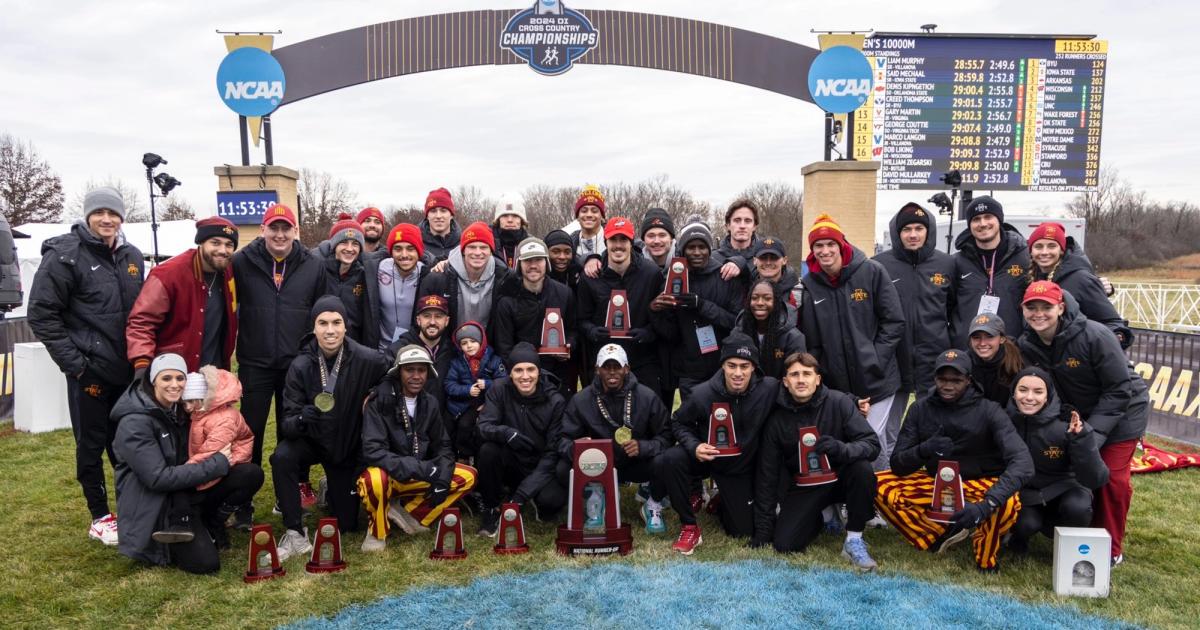
Courtesy Iowa State Athletics
I love what you said about the ‘five star culture’ and having a people-centered approach as a top priority.
Part of that is because we don't have a $300 million outdoor track to sell in recruiting. We’re in Iowa – it’s cold and there are some disadvantages when it comes to distance running. It’s why we have to find something else: an intangible... We don't have altitude. We don't have perfect, beautiful weather. We've got arctic-type temperatures. It's a blizzard out here this morning.
But the one core thing we do have is work ethic – this grind-type mentality and this ability to get people to do something when they come together and believe in each other. We almost have this underdog, chip-on-our-shoulder mentality, if that makes sense.
You mentioned that you like to keep your roster on the smaller side. There are a few changes ahead in terms of roster limits and scholarships. What is your perspective on those changes?
It's a big one to unpack. When you look at it on the surface, it's really scary. I was watching the [NCAA Cross Country Championship] press conference and the [coaches] were asked this question. They all had really good points of view like, ‘We need to be careful. We don't want to lose opportunities. We don't want to let our collegiate system not be as successful as it has been in the past when it comes to international running, whether it's the Olympics or having opportunities for our athletes.’
On the flip side of that, as it relates to us, it's something that we've already had in practice. It's very rare that I have more than 17 men on our cross country roster, unless they're 800m runners that are using it to get in shape. Going back to earlier, I feel like I'm a better and more effective coach when I have a smaller group that I can have everything dialed in for that individual. For us, I'm honestly not worried about the [roster] numbers per se.
On the scholarship side of things, anytime you can increase scholarships, that's great. I don't think all schools are going to be able to participate in the maximums, as some people out there think that might happen. If that does happen, I think it could potentially level the playing field as it pertains to cross country specifically. Track is a whole other animal. If you have 35 men’s scholarships or 45 women's scholarships in track, then you're probably going to have some disparity between top programs and programs that are not as funded.
But since cross country is such a small number – you need seven athletes to line up – carrying a roster of 10 to 17 can all of a sudden level the playing field a little bit. It gives other places more opportunities to sign better athletes or potentially create more equal footing. It creates a chance [for teams] to be more competitive at the NCAA meet.
For us, I think it’s a good thing because we have really nice resources and we'll be funded in that area. It’s one of those things where you don't completely know how you feel about it until it starts to happen. Then you can see where it’s going to go. Is it as bad as they really say it is? Is it actually going to be okay? Is this a new world that we're going to work in?
It’s definitely something that’s on our mind and we're trying to figure out how to navigate it the best we can as it comes at us.
Final question to close things out: you mentioned earlier that you want the team to win a national title. What do you think it’ll take to improve upon your 2nd place finish this year to winning it all in the future years?
It's really hard to win. I had a lot of coaches congratulate us and obviously we’re really happy about how we ran – but I told them, ‘It was right there. We almost had it.’ The reason I say that is because you just never know. I don't know what next year's team is going to look like. We have an incredible core. We return a lot of our guys, but we also graduate a couple key people – Sanele [Masondo], Said [Mechaal], and Gable Sieperda. Three of our top five. Not just from a running standpoint, but from a leadership standpoint too. Those guys will be hard to replace.
We also have some guys who we didn't end up running in our lineup that will be back. Rodgers [Rotich] was an all-American in 2023 and will be back in the lineup. We'll have Hanibal Haile, who was running early for us in the season that we ended up shutting down. He'll be back. With them, plus Ryan Watts and Devan Kipyego – both young American guys we’re developing – I feel really good that we'll have an exciting roster with a nucleus already built.
But what it will take to win is probably more recruits. It's an evolving game. The level we've seen the NCAA rise to from about 2020 or 2021 to what it is now has been at lightning speed. I think it's only going to continue. There's going to be even more times that you're going to see this week [at the Sharon Colyear-Danville Season Opener Meet]. It’s mind boggling how fast college athletes are running.
In order to win, it basically comes down to if we can get a roster that's going to be competitive, or competitive enough, and then time it perfectly for that November date where it all comes together. Hopefully we hit it and maybe a couple other teams don't hit it and the magic happens. So we'll see. That’s the vision. We’re trying to find one or two more impactful transfers or international athletes, or even American athletes that can come in next year and take us over that edge.
Thanks again for joining us and good luck throughout the indoor season!
___________________
Keep up with all things track and field by following us across Instagram, X, Bluesky, Threads, and YouTube. Catch the latest episodes of the CITIUS MAG Podcast on Spotify and Apple Podcasts. For more, subscribe to The Lap Count and CITIUS MAG Newsletter for the top running news delivered straight to your inbox.
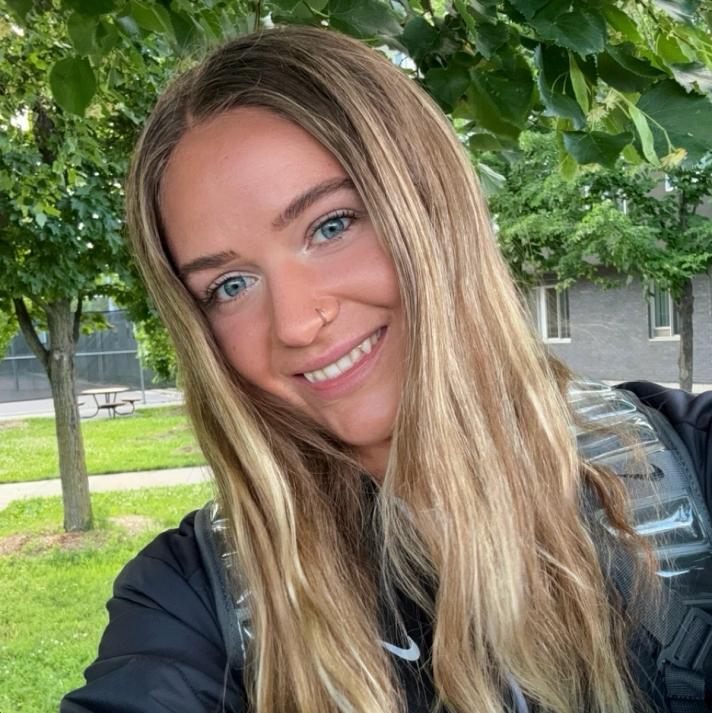
Jasmine Fehr
Jasmine Fehr produces the CITIUS MAG Podcast, manages our website, and shares content across our socials. She’s a marathon runner training in Flagstaff, Arizona. Her collegiate running career spanned the University of Portland and the University of Tennessee, where she earned a Bachelor’s degree in Psychology and Master’s degree in Communications.
